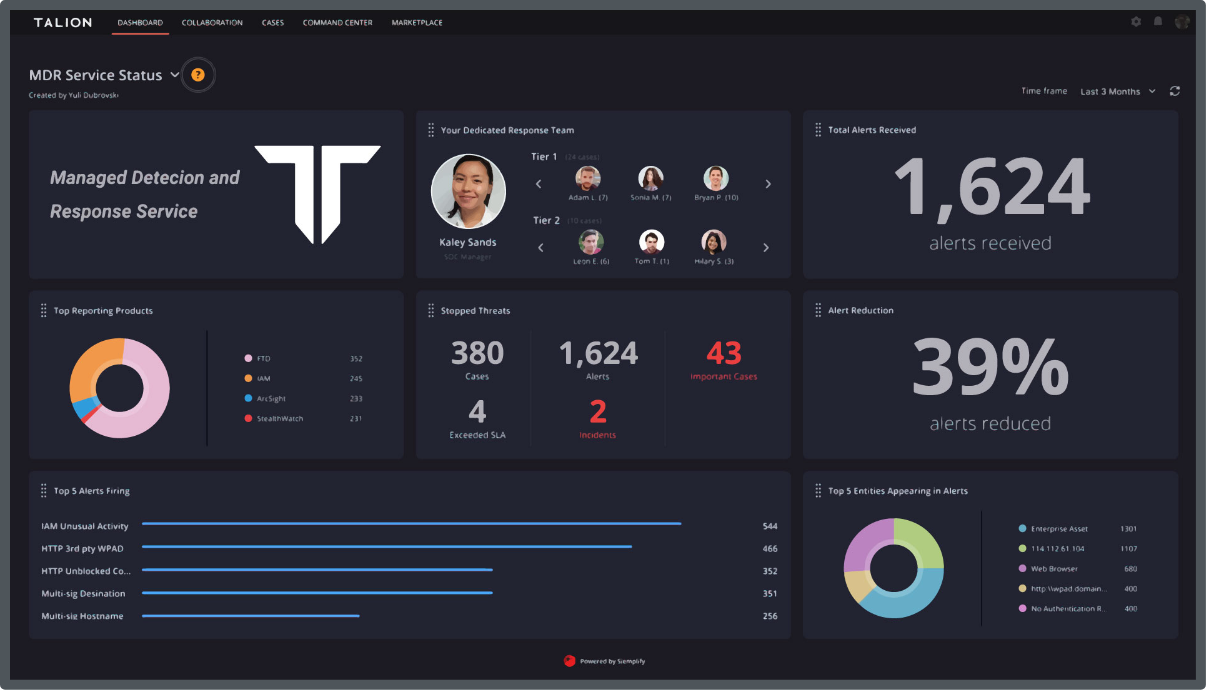Creating a successful cybersecurity strategy today involves navigating a myriad of challenges, particularly for CISOs. One of the key decisions in this journey is choosing the right Security Operations Center (SOC) model. In recent years, co-managed and hybrid SOC solutions have emerged as a powerful tool for businesses seeking to enhance their cybersecurity posture while balancing cost and complexity.
Even today, many MSSPs providing monitoring services continue to limit access to customer’s log data or visibility into the logic of the alerting content. This type of black box model forces companies to entrust all of their data to a third-party without any control or visibility.
On the other hand, hybrid SOC solutions provide flexible control and complete transparency to help protect businesses and mitigate personal liability for CISOs in the event of data breaches. If you are considering co-managed or hybrid SOC solutions, here are 5 key considerations to factor into your decision.
A hybrid SOC combines the best of both worlds: in-house security operations and outsourced expertise. This approach allows midsize companies to scale their security operations according to their needs without losing total control over data. During times of increased threat activity or business growth, the hybrid model provides the flexibility to ramp up resources without the need for significant capital investment. This scalability is crucial for mid-size companies that need to stay agile and responsive to changing cybersecurity landscapes.
Cybersecurity is a field that is constantly evolving, with new threats emerging regularly. Maintaining an in-house team that is fully equipped to deal with every type of threat can be challenging and costly. A hybrid SOC provides access to a pool of external experts with specialized knowledge and experience. These experts can offer insights and support that might not be available in-house, ensuring that the company stays ahead of potential threats.
Cost is a significant factor for midsize companies. A fully in-house SOC requires substantial investment in technology, infrastructure, and personnel. On the other hand, a fully outsourced SOC takes away your control over security operations. A hybrid SOC strikes a balance, offering a more cost-effective solution without compromising on the quality of security or data accessibility. By combining internal resources with outsourced services, companies can optimize their investment in cybersecurity.
Hybrid SOCs offer the benefit of continuous monitoring and rapid response capabilities. With a blend of in-house and external teams, there is always someone keeping an eye on the security systems, ready to respond immediately to any incident. This 24/7 monitoring is vital in a landscape where threats can emerge at any time and from anywhere.
For CISOs, the personal stakes are high in the event of a data breach. A hybrid SOC can play a crucial role in mitigating personal liability. By leveraging external expertise and robust, transparent processes, CISOs can demonstrate due diligence in their approach to cybersecurity. This due diligence is critical in the face of regulatory scrutiny and can protect CISOs from personal liability in the event of a security incident.
A hybrid SOC solution presents a balanced, flexible, and cost-effective approach to cybersecurity. It allows CISOs to leverage both in-house capabilities and external expertise, ensuring a robust defense against cyber threats. In an era where cybersecurity is a top priority, a hybrid SOC can be a strategic asset, protecting the business and mitigating personal liability for CISOs in the face of data breaches.

Call us directly and we’ll put you in touch with the most relevant cyber expert.
Not currently free to call? Give us a brief description of what you’re looking for by filling out our form and we’ll email you as soon as we can.
